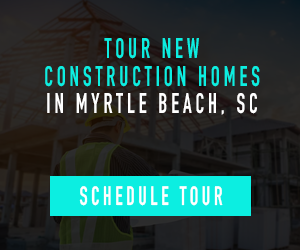As residents of Myrtle Beach, South Carolina, prepare for the tax season in 2024, it’s essential to understand the various tax rates, income tax regulations, and associated expenses. Taxes play a significant role in financial planning and can impact individuals, families, and businesses alike. In this comprehensive guide, we’ll explore the tax landscape in Myrtle Beach for 2024, covering property taxes, sales taxes, income tax rates, and other relevant expenses. By gaining insights into these aspects, residents can effectively manage their finances and make informed decisions.
Property Taxes:
Property taxes are a primary source of revenue for local governments and play a crucial role in funding public services, such as schools, infrastructure, and emergency services. In Myrtle Beach, property tax rates vary depending on factors such as property value and location within the city. As of 2024, the average property tax rate in Myrtle Beach is approximately 0.689%, which is relatively lower compared to national averages.
Homeowners in Myrtle Beach can expect to pay property taxes based on the assessed value of their properties. The city’s tax assessor determines property values, taking into account factors such as property size, location, and amenities. By understanding property tax rates and assessment methods, residents can effectively budget for their annual tax obligations and plan for future expenses.
Sales Taxes:
Sales taxes are another significant source of revenue for state and local governments and are levied on the sale of goods and services. In South Carolina, the statewide sales tax rate is 6%, with additional local sales taxes imposed by counties and municipalities. In Myrtle Beach, the total sales tax rate, including state and local taxes, is currently 9%, making it slightly higher than the state average.
Residents and visitors in Myrtle Beach incur sales taxes on various purchases, including retail goods, dining, entertainment, and accommodations. Understanding sales tax rates and exemptions can help individuals make informed purchasing decisions and manage their expenses effectively. Additionally, businesses operating in Myrtle Beach must comply with sales tax regulations and ensure proper reporting and remittance of taxes to the appropriate authorities.
Income Tax:
One of the key advantages of living in South Carolina is its favorable income tax structure. As of 2024, South Carolina imposes a progressive income tax system with marginal rates ranging from 0% to 7%. Individuals and families in Myrtle Beach benefit from relatively low income tax rates compared to many other states, making it an attractive destination for professionals and retirees alike.
Residents of Myrtle Beach are subject to both state and federal income taxes on their earnings. South Carolina’s income tax rates are based on taxable income levels, with higher earners paying higher marginal rates. By understanding income tax brackets and deductions, residents can optimize their tax planning strategies and maximize their take-home pay.
Other Expenses:
In addition to property taxes, sales taxes, and income taxes, residents of Myrtle Beach should consider other expenses associated with living in the area. These may include housing costs, transportation expenses, healthcare costs, and utilities. While Myrtle Beach offers a relatively affordable cost of living compared to many other coastal cities, individuals and families should budget for these expenses accordingly.
Housing costs in Myrtle Beach vary depending on factors such as property type, location, and amenities. Renters and homeowners alike should budget for mortgage or rental payments, property insurance, and maintenance costs. Transportation expenses may include vehicle expenses, fuel costs, and public transit fares. Healthcare costs, including insurance premiums, deductibles, and out-of-pocket expenses, should also be factored into financial planning.
Myrtle Beach Tax Resources:
Here are three websites for home buyers in South Carolina that provide state tax information:
- South Carolina Department of Revenue (SCDOR): The official website of the South Carolina Department of Revenue offers comprehensive information on state taxes, including income tax, sales tax, property tax, and business taxes. Home buyers can access tax forms, publications, and resources to understand their tax obligations in South Carolina. Visit: South Carolina Department of Revenue
- South Carolina Association of REALTORS® (SCAR): The South Carolina Association of REALTORS® provides valuable resources for home buyers, including information on state tax laws and regulations affecting real estate transactions. The website offers articles, guides, and links to relevant tax resources to help home buyers navigate the tax landscape in South Carolina. Visit: South Carolina Association of REALTORS®
- South Carolina Department of Commerce: The South Carolina Department of Commerce website offers insights into economic development, business resources, and tax incentives available in the state. Home buyers can explore tax-related information, including incentives for homeownership and property tax relief programs. The website also provides links to local economic development offices for further assistance. Visit: South Carolina Department of Commerce
These websites offer reliable information and resources to help home buyers in South Carolina understand state tax laws, regulations, and incentives related to homeownership.
Understanding taxes and expenses in Myrtle Beach is essential for residents to manage their finances effectively. By familiarizing themselves with property tax rates, sales tax regulations, income tax structures, and other expenses, individuals and families can make informed decisions about their financial futures. Whether planning to buy a home, start a business, or retire in Myrtle Beach, being aware of tax obligations and budgeting for expenses is key to achieving financial stability and success in the vibrant coastal community.










